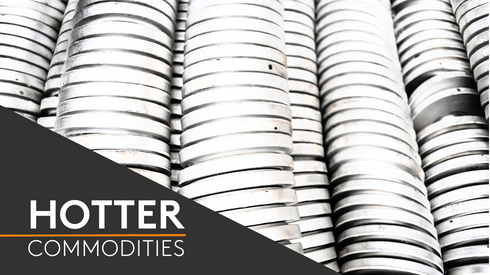The closure of the border between Zambia and the Democratic Republic of Congo is the latest example of this, despite its quickly reopening having relieved market concerns over supply disruption, especially of copper.
Zambia announced a temporary border closure on August 10 after the Democratic Republic of Congo (DRC) government imposed a ban on imported soft drinks and beer, but the two countries agreed to reopen the border on August 12.
Effects of metal shipment delays in Africa on global markets
Long-standing logistics problems in Africa have affected shipments of metals out of the region, with the impact varying depending on market conditions, Fastmarkets heard.
“It’s normal to hear logistics issues in Africa, which happens all the time, [and] it’s abnormal if all go as planned,” one copper trader in DRC said.
“I’m tired of complaining about this, and what you can do is to shorten the delays as much as possible,” the same copper trader added.
The DRC and Zambia are two major suppliers of copper and cobalt in Africa. Constant delays of copper shipments from the region boosted non-exchange-deliverable equivalent-grade (EQ) copper cathode premiums amid better import conditions in early August, Fastmarkets data showed.
Fastmarkets weekly assessment of the copper EQ cathode premium, cif Shanghai was $20-30 per tonne on August 13, up by $5-10 per tonne from $10-25 per tonne a week earlier, the highest level since late December 2023.
“The surge of the Shanghai EQ copper cathode premium is due mainly to constant shipment delays from Africa when import conditions improved, [and] the delays [of copper shipments] never stop,” a third copper trader said.
“The Red Sea crisis has worsened the conditions. The border issue between DRC and Zambia was resolved in two days, [there was] no further impact,” they added.
Cobalt market participants said the shipment delays caused by the closing of the border did not affect the market due to an oversupply of cobalt hydroxide and weak demand from downstream industries, Fastmarkets heard.
“In previous years, news of delayed logistics in the DRC would have an immediate impact on cobalt prices, given the disrupted supply in a market with strong demand. However, the market has changed,” one cobalt sulfate producer said.
“China’s cobalt market is very sluggish, especially cobalt sulfate. Any short-term raw materials [like cobalt hydroxide] delivery delay from DRC to China will have limited impact,” another cobalt consumer said.
Fastmarkets’ daily price assessment for cobalt hydroxide 30% Co min, cif China was $6.30-6.50 per lb on Wednesday August 14, unchanged since July 30, but down by $0.75-0.80 per lb from $7.10-7.25 per lb during March 12-28, the peak so far this year.
Further downstream, Fastmarkets’ price assessment for cobalt sulfate, 20.5% Co basis, exw China was 28,500-29,000 yuan ($3,981-4,051) per tonne on Wednesday August 14, unchanged since July 10. The price has reached its lowest level since Fastmarkets began its assessment in March 2018.
New concerns looming ahead for the zinc market
The DRC is not among the world’s top zinc concentrates producers, but its Kipushi mine – the fourth largest zinc mine across the globe – is expected to play an important role in the zinc raw material supply chain to China, Fastmarkets understands.
Market participants have expressed growing concerns about Africa’s logistical woes, and the resultant shipment delays of zinc concentrates from the continent will add more pressure to Chinese smelters which are starving for zinc concentrates.
“All I care about is when the Kipushi feeds could be shipped to China and give some relief to an extremely tight [zinc] concentrates market,” a zinc concentrate trader based in Shanghai said.
“I heard Kipushi concentrates would arrive in China in October, but I think there will be some delays due to poor logistics in Africa,” a second zinc concentrate trader said.
The Kipushi mine was commissioned in July and is expected to produce 100,000-140,000 tonnes of zinc concentrate in the second half of this year, with half of its output planned to be shipped to Asian countries.
The second zinc concentrate trader also worried that producers will give priority to shipping copper and cobalt first because their prices are much more higher and more profitable.
“The Kipushi zinc mine is at its very early stage, and intensified competition for trucks and vessels means sellers could prefer to sell highly valuable products, like copper and cobalt, not zinc,” a third zinc concentrate trader said.
The three-month copper price on the London Metal Exchange was $9,115.5 per tonne at the 5pm close on August 16, up by 0.70% from August 1.
The LME three-month cobalt price closed at $24,900 per tonne, down by 6.04% from August 1 and the LME three-month zinc closed at $2,762.5 per tonne on the same day, up by 2.05% from August 1.
Spot treatment charges (TCs) for zinc concentrate being imported into China reached a new record low on August 9 since its launch in September 2014 amid global zinc concentrates supply deficit, with almost all Chinese zinc smelters operating at huge losses, Fastmarkets learned.
Fastmarkets assessed the twice-monthly zinc spot concentrate TC, cif China at $(10)-(40) per tonne on August 9, down from $(20)-5 per tonne on July 26.
Fastmarkets’ battery raw materials suite brings together the vital commercial insights, data and analytics that you need to help you make accurate forecasts, manage inventories and price risk, benchmark costs against your peers’ and balance the costs and benefits of sustainability. Learn more here.





